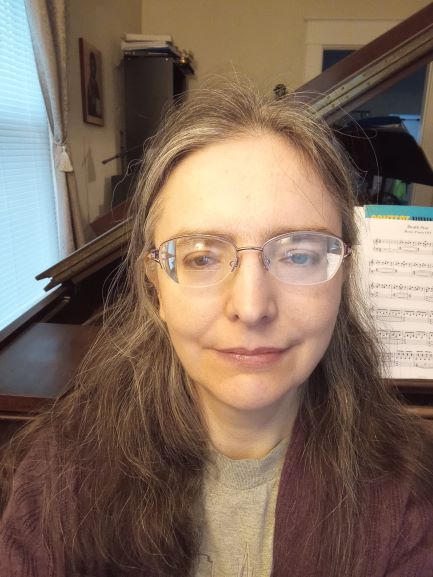About
I am a pianist, composer, and piano teacher, born in Bulgaria and now based in the USA. I have been playing piano since the age of six. As a child I liked making up little piano pieces, but I never wrote them down and never thought of myself as a composer. I did compose a couple of inventions and fugues for a Counterpoint class in college and found the process both challenging and fun.
Since 2014 I have been composing music for the services of the Orthodox church in order to meet the needs of small church choirs. My goal is to create music that follows the rhythm of the English language, has a natural melodic flow, and can be sung by 1 or 2 singers. I find inspiration in traditional chant and also Appalachian folk music.
I started composing for the piano in the 2020, in order to keep myself occupied while in lockdown. I am an avid fan of Korean dramas, so I tried to imagine myself as a film composer writing music for these shows. I thought of composing as a form of fan fiction. I wrote a piece, recorded it, and then shared it in a Korean drama discussion forum. The response was very enthusiastic and encouraging, so I just kept going. My major inspirations are music of the Romantic era, film music, and contemporary Minimalism.
